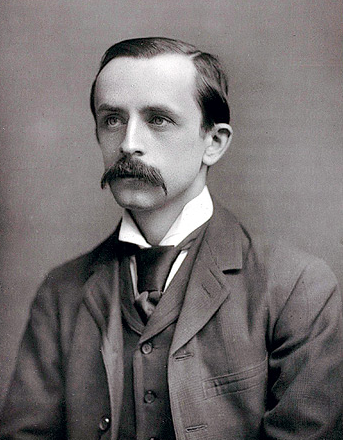Continuing my series of 1970's movies, I
recently watched 'The Lost Boys', a BBC drama series made in 1978
about JM Barrie and his relationship with the Llewellyn Davies boys.
JM
Barrie, the creator of Peter Pan, befriended the boys in
Kensington
Gardens while they were walking with their nanny.
He endeared
himself to the boys with his stories and playful antics and became a regular part of their
lives. The boys lost both their parents in the space of three years and were eventually adopted by Barrie. Barrie was married to Mary Ansell, but their relationship was
reportedly unconsummated and they didn't have any children of their
own.
 |
| Michael: the cleverest of us, the most original, the potential genius |
The general consensus seems to be that Barrie was a manchild who was unable to form deep and meaningful relationships with other adults. Like Peter Pan, he was stuck in a childlike world, loved and worshiped temporarily by other boys until they grew up and left him; a child trapped in a man's body.
All boys grow up. That's their tragedy
Except for one. And that's his.
Perversely, for Bobby Driscoll, the actor who voiced Peter Pan in Disney's 1953 version, it was growing up which proved tragic. He was a wonder child who starred in some of Disney's most popular live-action pictures, such as Song Of The South, So Dear To My Heart and Treasure Island and even won an Academy Juvenile Award for outstanding performance in feature films. But he was hit by a terrible bout of acne when he reached puberty and was unceremoniously dumped by the Disney Company when he lost his cute looks. He struggled to find acting jobs since and became heavily involved with drugs. He died aged 31 from heart failure, penniless and destitute. His body was found in an abandoned tenement in Manhattan, but it wasn't identified until a year later when his mother started looking for him and contacted Disney for a hoped-for reunion with his father, who was nearing death. This resulted in a fingerprint match at NYPD, which located his burial on Hart Island.
 |
| Bobby Driscoll - the voice of Peter Pan |



